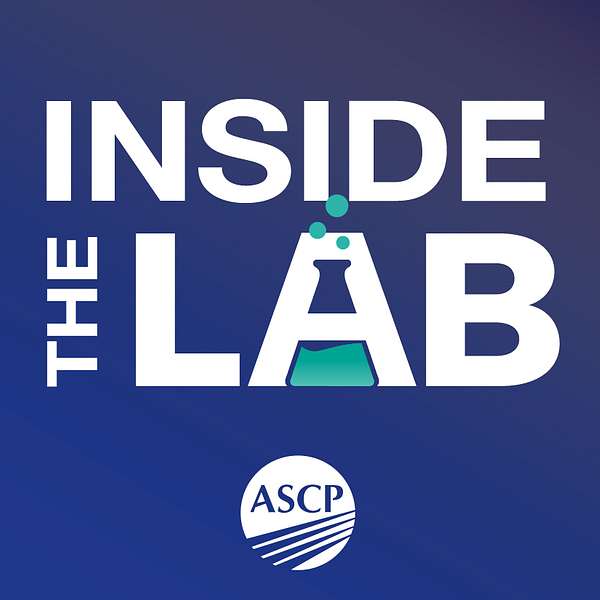
Inside the Lab
Inside the Lab
Ep10: The Importance of Empowered Patients
An educated patient is an empowered patient. The more you know, the better you can advocate for yourself and others. And while pathology and laboratory medicine affects every patient at some point in their life, few understand the role of the lab in high-quality patient care. As laboratory professionals, what can we do to help patients understand the scope of our role and how we can work together to improve their healthcare experience?
On this episode of Inside the Lab, our hosts Dr. Lotte Mulder and Ms. Kelly Swails are joined by Dr. Jeffrey Myers, MD, A. James French Professor of Diagnostic Pathology and Vice Chair for Clinical Affairs and Quality at the University of Michigan Medical School, Ms. Jasmin Hudgins, M.Clfs., MLS(ASCP)CM, Laboratory Manager for Schneider Regional Medical Center on the island of St. Thomas, US Virgin Islands, and Ms. Renee Siegel, MSW, LCSW, Program Manager for the Patient and Family Advisory Councils (PFACs) and Project Manager for the Division of Patient and Family Programs and Services at Dana-Farber Cancer Institute, to discuss the importance of empowered patients.
The panelists explain what differentiates patient- and family-centered care, describing what it looks like to work with patients and how listening to their concerns reorients us to what matters most. Listen in for insight around the appetite patients have for learning about their lab results directly from pathology professionals and learn how to cultivate patient engagement through formal Patient and Family Advisory Councils, and informally on the clinical level and in the communities we serve.
Key Takeaways
· What distinguishes patient- and family-centered care from what historically has been provided
· What it looks like for professionals in pathology and laboratory medicine to work with patients and families versus doing things to and for them
· The opportunities for understanding and eliminating barriers to racial equity in the healthcare system
· How cultural differences impact patient engagement and empowerment
· Questions to ask as patients to gain a more complete understanding of lab results and course of care moving forward
· The most effective strategies for collecting feedback from the communities we serve
· Barriers to patient advocacy work and what the lab can do to work through those obstacles
Connect with ASCP
ASCP
ASCP on Facebook
ASCP on Instagram
ASCP on Twitter
Connect with Dr. Myers
Dr. Myers at the University of Michigan
Dr. Myers on LinkedIn
Connect with Ms. Hudgins
Schneider Regional Medical Center
Connect with Ms. Siegel
Patient and Family Advisory Councils at the Dana-Farber Cancer Institute
Ms. Siegel on LinkedIn
Connect with Dr. Mulder & Ms. Swails